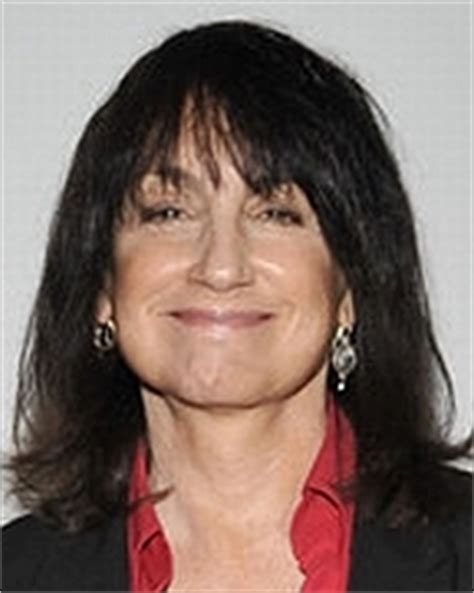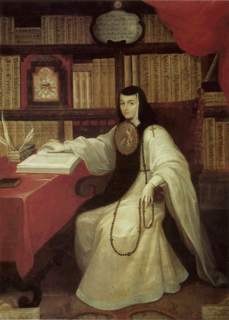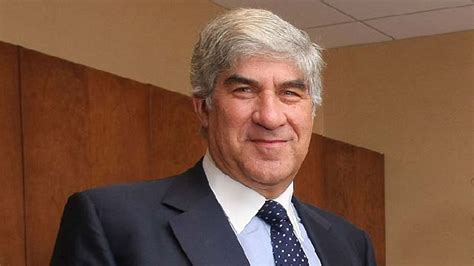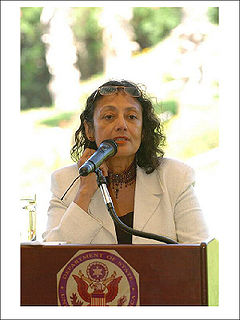A Quote by Anne Lamott
[Her] work taught me that you could be all the traditional feminine things -- a mother, a lover, a listener, a nurturer -- and you could also be critically astute and radical and have a minority opinion that was profoundly moral.
Related Quotes
Feminism has nothing at all to do with being 'feminine.' Feminine means accentuating the womanly attributes that make women deliciously different from men. The feminine woman enjoys her right to be a woman. She has a positive outlook on life. She knows she is a person with her own identity and that she can seek fulfillment in the career of her choice, including that of traditional wife and mother.
More than any other personality trait, my mother seemed to be ruled by anger and sadness. She seemed to hate being a mother. Watching her unhappiness as I grew up made me conclude that the answer was to try and be as unemotional as I could, which many therapists have taught me is a bad idea. It also made me want to avoid marriage and having children.
I was not yet three years old when my mother determined to send one of my elder sisters to learn to read at a school for girls we call the Amigas. Affection, and mischief, caused me to follow her, and when I observed how she was being taught her lessons I was so inflamed with the desire to know how to read, that deceiving - for so I knew it to be - the mistress, I told her that my mother had meant for me to have lessons too. ... I learned so quickly that before my mother knew of it I could already read.
A work can do many things at once, and it doesn't have to be just about the world, it could also be about photography, it could be about perception, it could be an exploration of the medium. It could be a document, it could be a visual poetry, and it could be a formal exploration all at the same time.
She stared at herself in the mirror. Her eyes were dark, almost black, filled with pain. She'd let someone do that to her. She'd known all along she felt things too deeply. She became attached. She didn't want a lover who could walk away from her, because she could never do that - love someone completely and survive intact if her left her.
Mother Teresas detractors have accused her of overemphasizing Calcuttans destitution and of coercing conversion from the defenseless. In the context of lost causes, Mother Teresa took on battles she knew she could win. Taken together, it seems to me, the criticisms of her work do not undermine or topple her overall achievement.
Out of the corner of one eye, I could see my mother. Out of the corner of the other eye, I could see her shadow on the wall, cast there by the lamplight. It was a big and solid shadow, and it looked so much like my mother that I became frightened. For I could not be sure whether for the rest of my life I would be able to tell when it was really my mother and when it was really her shadow standing between me and the rest of the world.
I admire Joyce Maynard a lot, specifically her memoir "At Home in the World." Her writing is beautiful and fascinating and seemed to give me validation to the idea that I could write validly in earnest about my life with (my) very feminine point of view, and also that I could unapologetically explore the bad traits of my character (which I find to be more interesting to explore than the good traits), as well as explore other concepts that interest me like private vs public personas, age gap relationships, etc.
Mother Teresa's detractors have accused her of overemphasizing Calcuttans' destitution and of coercing conversion from the defenseless. In the context of lost causes, Mother Teresa took on battles she knew she could win. Taken together, it seems to me, the criticisms of her work do not undermine or topple her overall achievement.
Truth always rests with the minority, and the minority is always stronger than the majority, because the minority is generally formed by those who really have an opinion, while the strength of a majority is illusory, formed by the gangs who have no opinion - and who, therefore, in the next instant (when it is evident that the minority is the stronger) assume its opinion ... while Truth again reverts to a new minority.






































